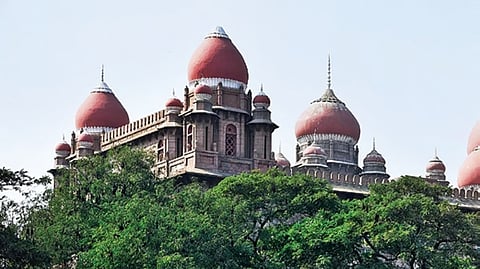

HYDERABAD: Making it clear that ecological concerns and public welfare outweigh individual grievances, Justice CV Bhaskar Reddy of the Telangana High Court has rejected a clutch of 41 writ petitions against the state government’s Musi rejuvenation project. However, the judge made it clear that the state government must ensure strict implementation of the Supreme Court guidelines regarding removal of unauthorised constructions in the full tank level (FTL), buffer zone, and riverbed of the Musi.
The court reaffirmed the applicability of the Water, Land and Trees Act 2002, and strict adherence to Building Rules, 2012 in dealing with violations.
During the hearing, the state government stated that Musi Riverfront Development Project aims to transform the river into a clean, flowing water body with enhanced infrastructure and urban landscapes.
The proposal entails surveys using satellite imagery and Differential Global Positioning System (DGPS) technology to identify encroachments.
319 affected families already rehabilitated, HC informed
The government also informed the court that 15,000 2BHK units have been earmarked for allocation to families affected by the project, with 319 families already rehabilitated.
Also, the affected families would be provided livelihood support through interest-free loans, educational access, and welfare schemes, the court was told.
The petitioners countered by saying that their houses were built after obtaining permissions from the GHMC and HMDA and said that they were being targeted arbitrarily. They argued that the approvals, property tax assessments and utility connections validate their ownership.
Citing a lack of due process, the petitioners claimed that HYDRAA lacked statutory authority to interfere. They also urged that surveys and demolitions comply with legal norms, and that their rights under Articles 14, 21, and 300-A of the Constitution be upheld.
The state government justified the involvement of HYDRAA in the project, saying that it remained committed to maintaining ecological balance.
HC to officials:
Serve notices to encroachers before removing illegal constructions
Clear structures in a time-bound manner
For patta and Shikam patta lands, issue notices and ensure fair compensation is paid as per norms
Conduct a socioeconomic survey to rehabilitate affected people
Ensure suitable housing and support must to displaced families and their livelihoods restored
Prevent sewage and other contaminants from polluting Musi
File criminal cases under relevant laws on encroachers and land grabbers found damaging water bodies
Police to provide security to officials conducting boundary surveys